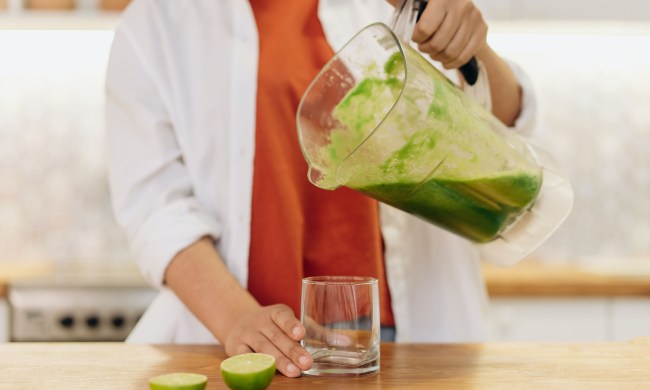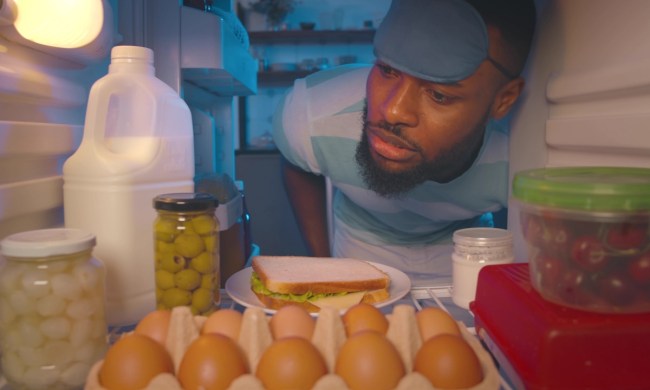Caffeine is America’s stimulant of choice. According to one study, a whopping 85 percent of the U.S. population consumes at least one caffeinated beverage per day, with 96 percent of those beverages being coffee, tea, or soft drinks like soda or energy drinks.
Coffee, not surprisingly, is the leader of the pack. According to the National Coffee Association, coffee consumption is rising, with 7 in 10 people drinking coffee once a week and 62 percent doing so every day. Another study found that rising numbers of adolescents are consuming caffeinated energy drinks.
While caffeine, for the large part, is safe to consume, it can have unwanted side effects, including addiction. Looking for an alternative to that morning cup of joe or three? We’ve researched the best foods and beverages to boost energy, no caffeine required.
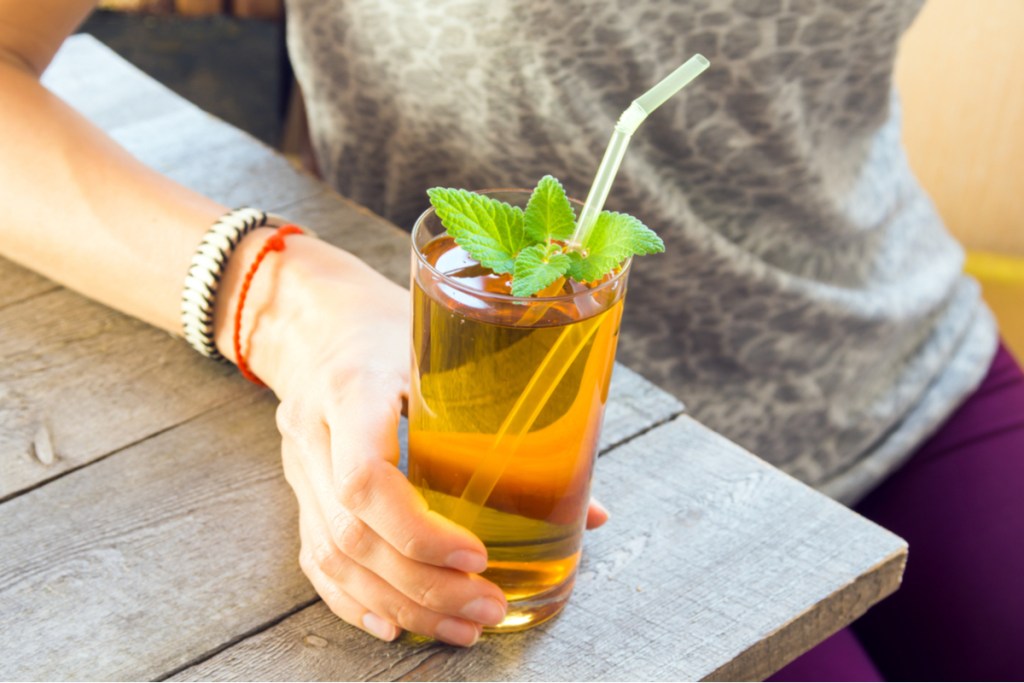
Health effects of caffeine
Not all caffeinated beverages are created equal, and some have much more caffeine per serving than others. Coffee leads the pack with 95 milligrams per 8 ounces, and the average energy drink isn’t far behind at 70 milligrams. Tea and soda have much less caffeine, consisting of 26 and 20 milligrams per 8 ounces, respectively.
While caffeine is a tried-and-true source of energy, irritating and potentially serious side effects can occur. Several of these effects are especially strong for pregnant women, which is why caffeine is off-limits for expectant mothers. Potential health risks and side effects of caffeine include:
- Headaches
- Insomnia
- Jitters
- Fast or uneven heartbeat
- Dehydration
- Gout flareups
- Hot flashes in menopausal women
- Delayed fetal growth
- Reduction in female fertility
- Loss of pregnancy
If you’re pregnant or simply looking to cut down on your coffee intake, there are a variety of alternative sources of energy that won’t leave you with espresso jitters.
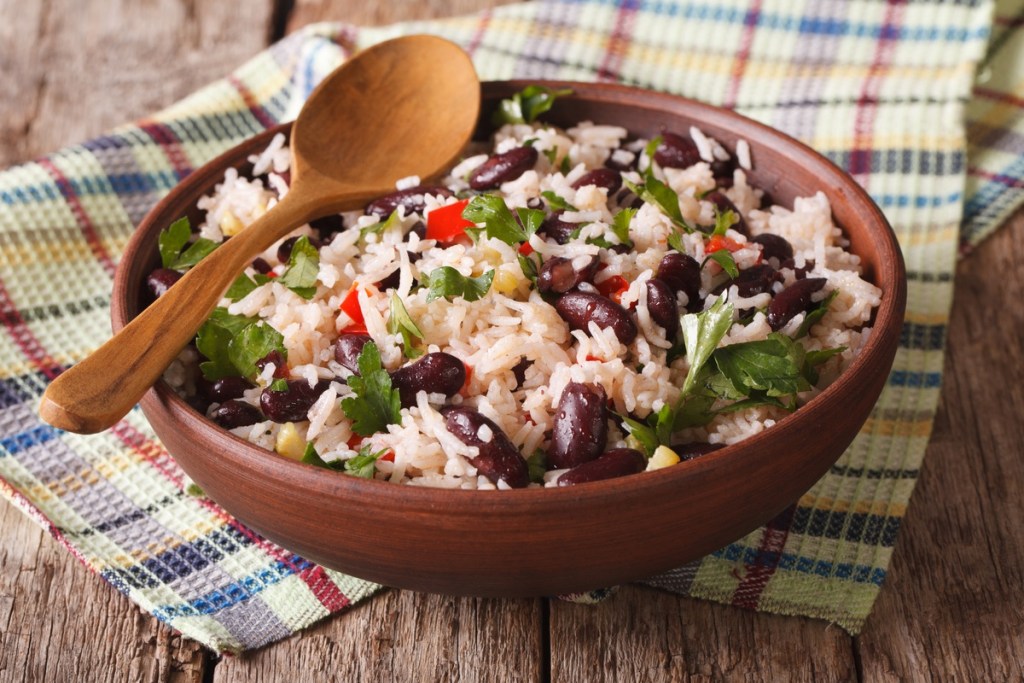
Caffeine-free energy-boosting foods
Energy boosts don’t only come from that liquid gold we call caffeine. Some of the greatest sources of energy are foods that are rich in carbohydrates and vitamins, which work together to give your brain and body a much-needed jolt.
- Bananas: Vitamin B6 is the go-to vitamin to put some extra pep in your step. It accelerates the process that transforms carbs and protein into glucose, which your body uses for energy. Bananas are a great source of this vitamin, as well as carbohydrates and, of course, potassium.
- Eggs: The incredible egg is full of protein that provides sustained energy all through the day. Eggs are also rich in the amino acid leucine, which helps your body produce and manage energy more effectively.
- Beans and brown rice: There are two main components that determine how much energy you’ll get from any given food: complex carbohydrates and fiber. Unlike simple carbs like sugar and refined starches, complex carbs break down slowly over time, so you won’t experience a sugar crash. Beans, brown rice, legumes like peanuts and chickpeas, and sweet potatoes all contain filling complex carbs and fiber.
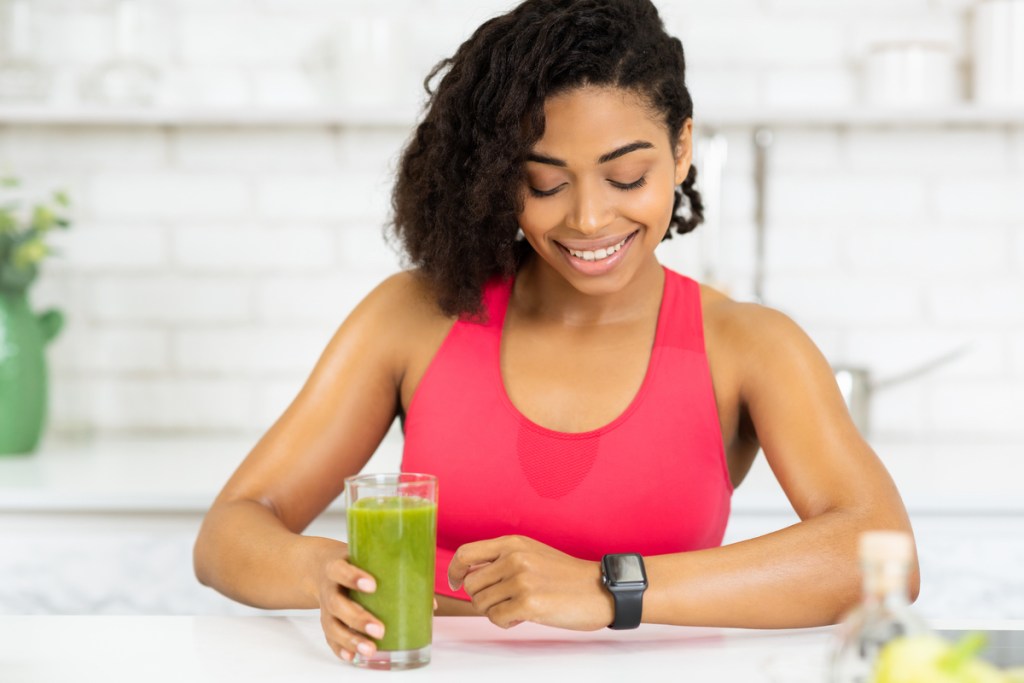
Caffeine-free energy-boosting beverages
If you really can’t let go of that energy drink or cup of coffee, there are other drinks that provide a more natural, consistent energy boost.
- Water: Hydration is critical for mood and energy, among many other things, so it’s important to drink plenty of water to keep your body going strong. Experts recommend drinking eight ounces per day to keep your body in tip-top shape.
- Kombucha: This super drink, made from fermented tea, improves gut health and overall energy. It does contain small amounts of caffeine, but only in trace amounts that are similar to what is found in decaf coffee.
- Smoothies: Not all smoothies are created equal, and drinks with added sugar will leave you hungry and tired just an hour or two later. Fill up your smoothie with a scoop of chia seeds for extra protein or oats for extra fiber.
No single food or beverage will provide the same short-term energy burst as a caffeinated or sugary beverage. However, if you keep these foods and drinks on hand, you’ll find yourself with day-long energy that keeps you from running to the coffee pot every morning.
BlissMark provides information regarding health, wellness, and beauty. The information within this article is not intended to be medical advice. Before starting any diet or exercise routine, consult your physician. If you don’t have a primary care physician, the United States Health & Human Services department has a free online tool that can help you locate a clinic in your area. We are not medical professionals, have not verified or vetted any programs, and in no way intend our content to be anything more than informative and inspiring.

